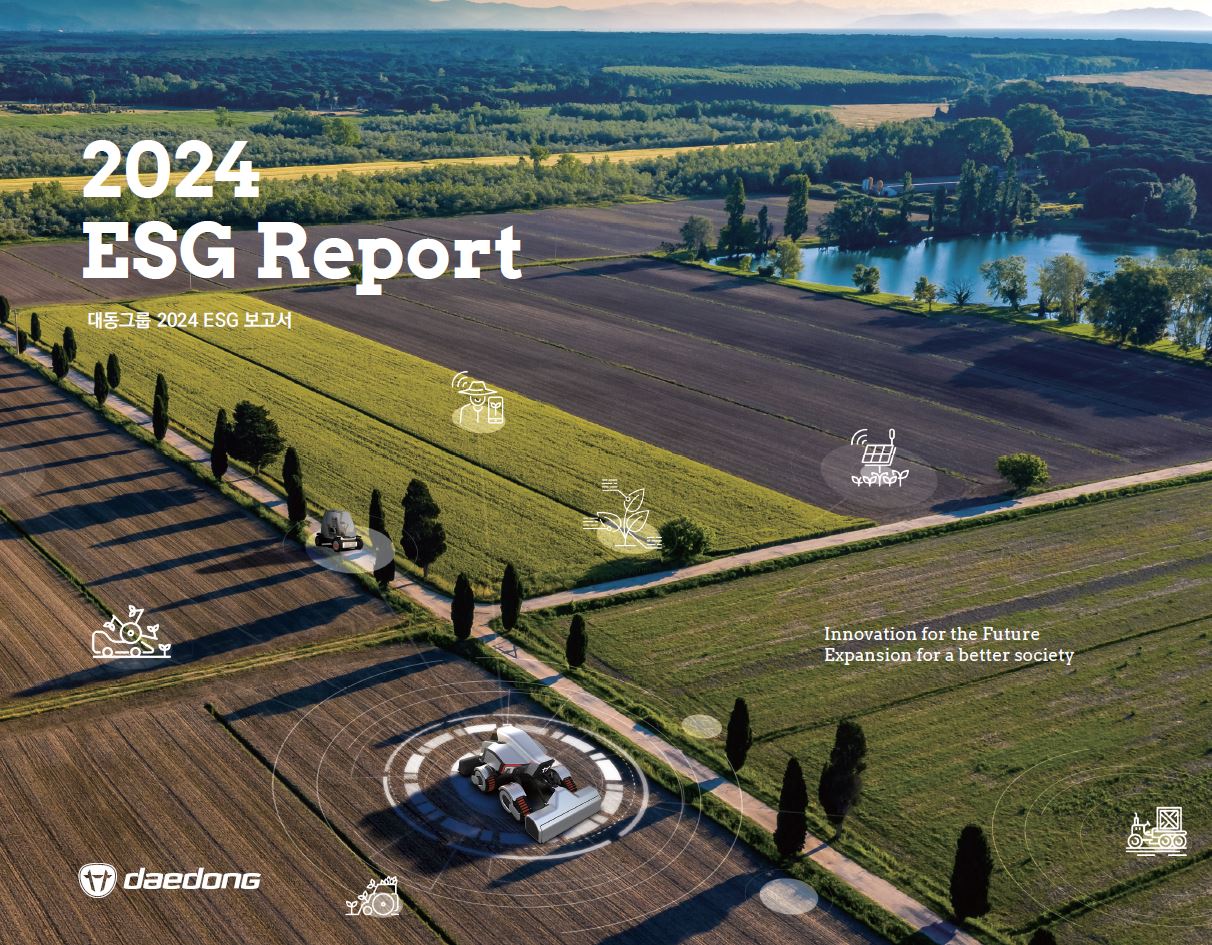Daedong publishes first consolidated ESG report for the Group in 2024
“Sharing the ESG achievements by Daedong’s core group of subsidiaries”
Daedong publishes first consolidated ESG report for the Group in 2024
- Company previously created a dedicated department and ESG committee in 2023 to lay the foundation for ESG management across the Group
- Report contains the ESG performance and achievements of four companies, including Daedong. Content and format are all compliant with international reporting guidelines set by GRI
- Last year, Daedong focused on strengthening its environmental performance. Company managed its emissions with greenhouse gas inventory solutions and by opening a solar power plant
Daedong, a leader and pioneer in future ag-tech (Co-CEOs Kim Jun-sik and Won Yu-hyun), announced on August 5 that it published the “2024 Group Consolidated ESG Report” containing the company’s (Daedong, Daedong Mobility, Daedong Gear, and Daedong Metals) performance and achievements in ESG (Environment, Society, and Governance) management.
Last year, Daedong decided to focus on promoting ESG management as one of its three major managerial objectives across the entire Group, and created a Group ESG department and ESG Committee to reinforce its capacity to execute ESG initiatives and expand ESG management practices to all Group subsidiaries. In doing so, it established a mid- to long-term ESG management plan and published the Daedong Group Consolidated ESG Report, which meets the Global Reporting Initiative (GRI) Standards, an international reporting guideline for sustainable management, for the first time in company history.

The Report includes details and achievements of ESG activities carried out last year, and introduces a dual materiality assessment that considers the impact of environmental and social factors on corporate financial status. Also, of course, the Report has been verified by a third party to make sure the data it uses is reliable. The reporting period for ESG performance is from January 1 to December 31, 2023, but some achievements from the first half of 2024 are included in the Report as well.
Among notable ESG achievements, Daedong reported that it (1) managed greenhouse gas emissions by establishing a greenhouse gas inventory[1] system; and (2) built a 3MW self-consumption solar power plant, etc. in the Environment category. Daedong Group is responding to climate change by measuring greenhouse gas emissions through on-site inspections of each place of business operated by Daedong Group, and the company is systematically managing greenhouse gas emissions to establish a greenhouse gas inventory.
In particular, in order to reduce indirect greenhouse gas emissions (Scope 2), a 31,000㎡ (equivalent to five football pitches) private rooftop solar power plant was installed at Daedong Mobility’s S-Factory (Guji-myeon, Dalseong-gun, Daegu-si) in April of this year, expanding the company’s use of renewable energy for the RE100 transition. By doing so, Daedong Mobility has been able to reduce indirect greenhouse gas emissions by 1,508 tons per year, and the company saves approximately KRW 230 million every year using the electricity it produces itself.
In the Social category, Daedong and Daedong Mobility have appointed a Chief Safety Officer (CSO) to periodically review resolutions on environmental issues, the decision-making behind policies, and performance in managing the environment to create a safe and healthy workplace. As for Governance, Daedong created a Nominating Committee for Non-executive Directors and a Remuneration Committee within the Board of Directors, laying the foundation for establishing a sound and transparent governance structure and further internalizing ESG management principles.
________________________________________
[1] A list of greenhouse gas emissions by source of a company or organization, a series of greenhouse gas management systems that identify, record, manage, calculate, and report all greenhouse gases emitted due to corporate activities.
